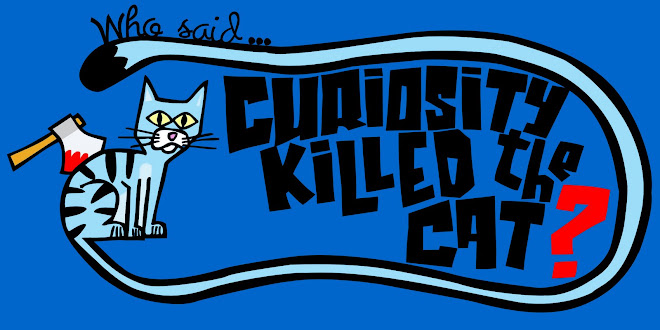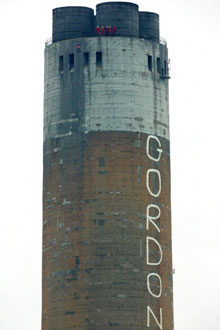British birdwatchers trying to stop the illegal killing of some of Europe's rarest birds in Malta have become embroiled in an increasingly tense standoff with local hunters and say they have recovered unprecedented numbers of carcasses of protected birds.
Thirty British volunteers and a delegation of five staff from the RSPB have spent the last two weeks documenting the shooting of birds of prey such as osprey, honey buzzards, and marsh harriers as they fly over over the Mediterranean island on annual migratory routes. The volunteers estimate scores of rare birds protected by EU laws have been killed this year and claim the shootings have reached a new high.
The carcasses of dead raptors are not usually recovered as hunters tend to take them as prizes and are anxious to hide the evidence. But in just eight days the camp recovered 17 shot raptors this year - more than double the total number recovered by similar-sized groups of volunteers in the previous two years put together.
This year the birdwatchers, who say the hunting is threatening British conservation projects, also claim they have faced increasing verbal abuse, intimidation and sabotage. Their camps have been vandalised, tyres on their vehicles have been punctured and they are regularly told to "fuck off back to England".
The standoff threatens to escalate into a minor diplomatic incident after the hunters, who claim they are merely exercising an ancestral tradition, complained to the RSPB's patron, the Queen. They also plan to complain to the European commission about invasion of privacy.
They accuse the RSPB of "dishonest" campaigning designed to "undermine Maltese culture". And they say there is no proof that hunting on the island threatens endangered species.
Malta and the neighbouring island of Gozo are a key stopover point for hundreds of thousands of migratory birds as they make the journey from Europe to spend winter in Africa.
But Malta is also home to the highest concentration of registered hunters anywhere in Europe. And at this time of year thousands engage in the island's popular pastime of bird shooting.
They say they are only hunting turtle dove and quail, which is legal during autumn. But each year local conservationists estimate that thousands of birds, from species protected under European laws, are also shot, in many cases deliberately.
Grahame Madge, an RSPB spokesman, said: "It's like a war zone, the smell of death is everywhere."
"The scale of the slaughter is unimaginable and it's a race against hunters every moment."
Few of the hunters are ever caught for illegal killings, and if they are, they typically escape with a €100 fine.
The RSPB has recruited volunteers to attend so called Raptor Camps over the island to monitoring migration and reporting illegal hunting. The camps are organised by the RSPB sister organisation Birdlife Malta and include volunteers from all over Europe. The camp's methods, which include filming illegal killing and posting the footage to YouTube, have enraged local hunters.
The more the group has recorded illegal hunting, the uglier the standoff with the hunters has become.
"We have had regular drive-by abuse from hunters shouting 'fuck off back' to England," said Nick Unwin, a teacher from Surrey.
"Every time we get into cars we have to look for nails, and in most places we have to have security guards with us," he said. Over the last week cars have been attacked and punctured, abusive graffiti has been sprayed on nature reserve signs and used car oil was poured over an observation tower.
"Intimidation and hostility is constant here," says Steve Bentall, a wildlife management masters graduate from Hampshire.
"We were at the side of a road and hunters in cars came down the road at about 70mph and started intentionally swerving into us to scare the life out us."
But Bentall's passion for birds of prey means he won't be put off. "Two mornings ago we saw a rare Eleonora's falcon. It was a fantastic spectacle and then it got shot. It breaks your heart."
He adds: "Some of these birds are down to there last few hundred pairs in Europe. If we don't tackle illegal shooting, we are going to lose more species."
"These are legally protected species and they have been for 30 years, and yet they are still slaughtering them. I just can't get my head round it."
Steph Charlton, a zoo keeper from the Isle of Wight, witnessed a honey buzzard and osprey being shot.
"In the UK we spend thousands of pounds on high profile osprey projects. Then they fly over here and are shot down. It's crazy. I didn't realize how blatantly they do it."
Dr Andre Raine, BirdLife Malta's conservation manager said: "This is the worst season that many local birdwatchers can remember. "If we can recieve 17 birds of prey with confirmed gunshot injuries in eight days, then the actual number of protected birds being shot must be very high."
The organisation's spokesman claims the abuse from hunters over the last two years has included drive by shootings, bird watchers being spat at, and car tyres being slashed. But he claimed the attacks over the last fortnight are "worse than usual".
He claimed backlash by hunters is being whipped up by "threatening and xenophobic" statements by islands' hunting lobby the Federation for Hunting and Conservation, or FKNK.
The federation condemns illegal hunting but it has taken a combative attitude to RSPB and its volunteers.
It claims the RSPB and Birdlife Malta exaggerates the extent of illegal shooting there is no hard evidence of a bird massacre.
It accuses the RSPB of conducting a "despicable and fictitious crusades against tiny Malta" and claims their conservationists are "foreign mercenaries".
It warns the RSPB against getting involved in "social hatred campaigns" aimed at destroying hunting which it describes as a "Maltese ancestral tradition".
The federation secretary Lino Farrugia refused to speak to the Guardian. But in a press statement he denied the federation had encouraged intimidation.
He said: "The RSPB have far better things to do than organise visits to the Maltese islands solely to pester, interfere and further antagonise Maltese law-abiding nationals."
He added: "Out of the odd 260 reports of illegal hunting that BirdLife alleged to have received, the police to date have only arraigned seven persons with hunting related offences, out of which only three refer to illegal hunting."
Birdlife Malta claims convictions are rare because there are so few police dealing with the problem as the Maltese government refuses to take it seriously.
Birdlife's president, Joseph Mangion, said: "As long as the police fail to take action and the government remains silent, the situation is likely to get worse."
The government of Malta has yet to respond.
The Guardian, 30 September 2008.







